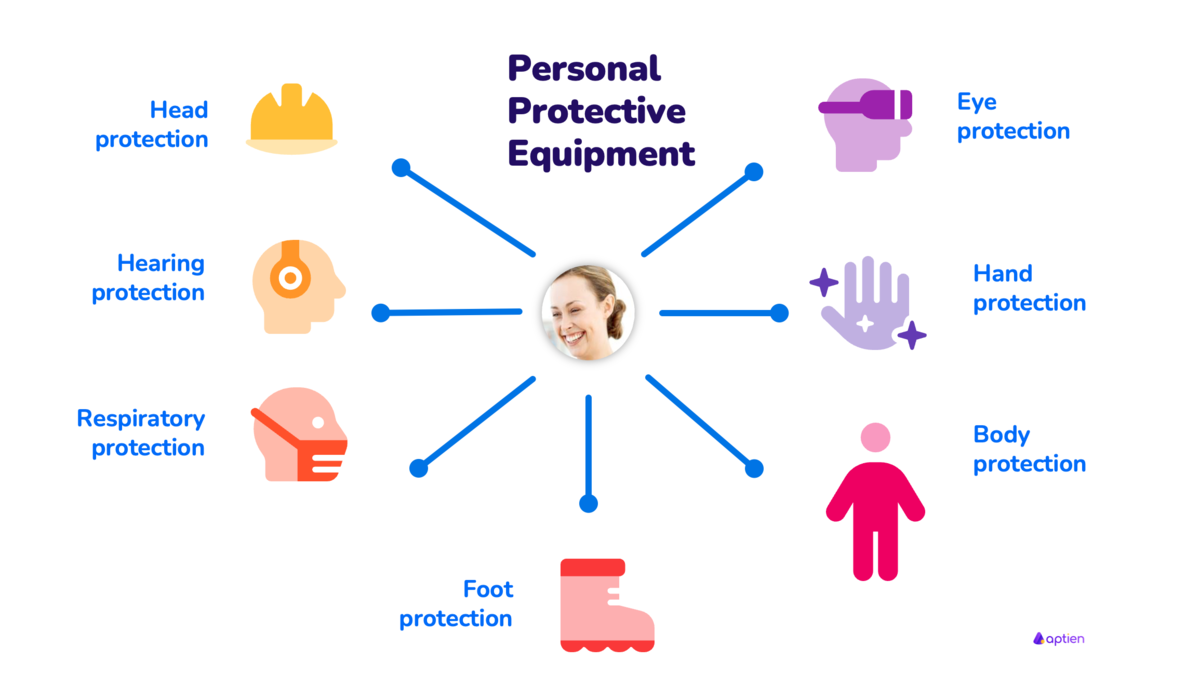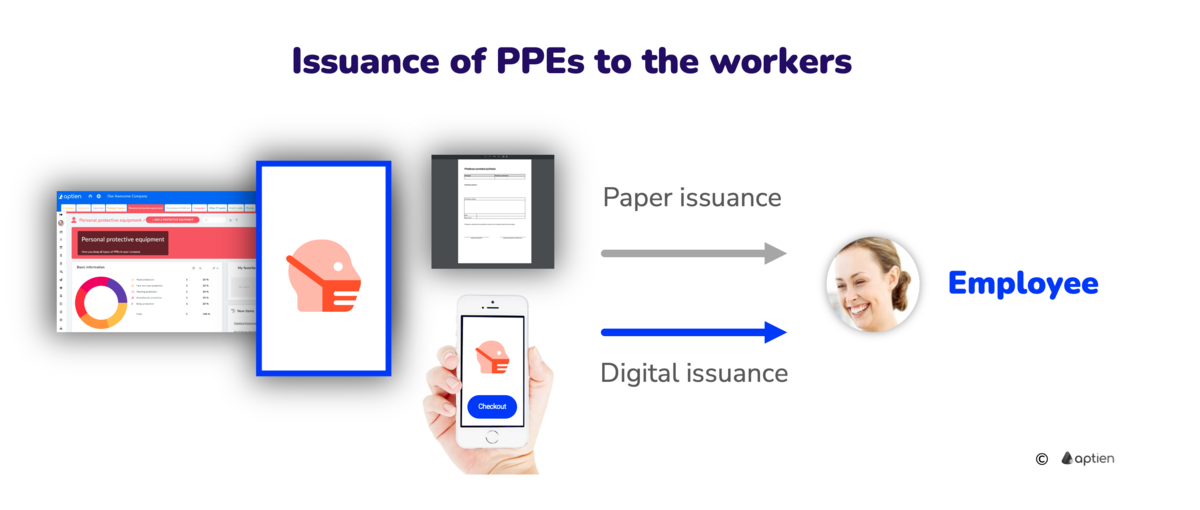Definition of PPE, Personal Protective Equipment
Personal protective equipment (PPE) refers to equipment worn to minimize exposure to hazards that could cause serious workplace injuries or illnesses. Well-equipped workforce is a safer workforce.
Basic types of Personal Protective Equipment (PPE)
Protective Equipment can be both consumable and durable. Here is a basic breakdown and types of protective equipment and their examples.
Head protection
- Helmets, hard hats
- Caps, hoods
- Hair nets against the risk of entrapment
- Shields, masks
Hearing protection
- Headphones
- Earplugs
Eye and face protection
- Protection glasses, safety goggles
- Face shields
Respiratory protection
- Filtration respirators
- Breathing equipment
- Diving equipment
Hand and arm protection
- Gloves
- Protection of individual fingers
Foot protection
- Footwear
Body protection
- Knee pads
- Pants against mechanical, thermal and chemical risks and biological agents
- Various accessories (e.g. spikes)
Skin protection
- Protective creams
Body protection and other skin protection
- Climbing equipment (harnesses, fall arresters, rescue harnesses, etc.)
- Full body protection (ie suits and coveralls)
- Life jackets against drowning
- Visual signaling
Streamline your PPE Management with Aptien
Aptien simplifies the management of your personal protective equipment (PPE) by:
- Centralizing PPE records: Maintain a comprehensive register of all PPE items, including type, quantity, and location.
- Tracking equipment lifecycle: Monitor the issuance, return, and maintenance of PPE to ensure proper usage and compliance.
- Generating reports: Generate reports on PPE usage, inventory levels, and compliance with safety standards.
- Facilitating inspections: Schedule and track regular PPE inspections to identify and address any damage or deficiencies.
Efficient PPE Issuance and Management
Ensure workplace safety and regulatory compliance by effectively managing the issuance of personal protective equipment (PPE). Our digital solution streamlines the process, allowing two ways you to:
- Digitally issue PPE: Track and assign PPE to employees effortlessly.
- Print physical forms: Maintain a paper record for traditional workflows.
- Centralize PPE management: Gain complete visibility into PPE inventory, usage, and compliance.
How to Confirm Receipt of Work Equipment
- When handing over equipment in person (face-to-face), the employee confirms receipt directly in the mobile app, as shown in the previous image.
- If the handover occurs remotely, the employee confirms receipt in their employee portal.

